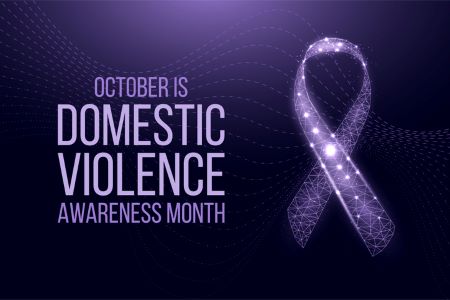October 9, 2024
More Can Be Done to Combat Domestic Violence
By Senator Jeff Smith
October is Domestic Violence Awareness Month, and I am committed to advocating for increased awareness and action on this critical issue. Domestic violence is not only a violation of human rights but a public health crisis, leaving victims with long-lasting trauma. We must work to ensure that those affected by domestic violence are receiving the support, both physical and emotional, that they need.
The sad truth is that not all victims live through domestic violence. According to the 2022 End Domestic Abuse Wisconsin Homicide Report, someone is murdered every four days because of domestic violence in Wisconsin, and firearms were used in 88% of these murders. Nationally, the leading cause of death for pregnant women is being murdered. These are sobering statistics that underscore the urgency of improving our prevention efforts, supporting victims and ensuring justice.

Wisconsin offers various resources to assist victims of domestic violence, yet more can be done to reach the most vulnerable. The Safe at Home program, for instance, provides survivors with a confidential address, allowing them to protect their location from abusers. This is a vital tool for those seeking safety and peace of mind. However, we need to expand awareness of this program, especially in rural and underserved areas where access to resources can be limited.
Additionally, the Violence Against Women Act (VAWA) STOP program, administered by the Wisconsin Department of Justice, funds essential services like victim advocacy, law enforcement training and prosecution of domestic violence crimes. We should increase support for these programs, particularly in communities with high rates of domestic violence homicides.
One of the key components of victim support is data collection and analysis, which helps us understand the scope of the problem and target resources effectively. The Missing & Murdered Indigenous Women (MMIW) Taskforce of which I am a member is an example of how data can be used to address systemic issues within specific communities. Indigenous women face disproportionately high rates of domestic violence, and the task force's findings will provide crucial insights into the challenges these communities face. We should commit to implementing the task force's recommendations to combat this crisis facing Indigenous communities.
While supporting victims is essential, we must find ways to prevent these acts in the future. One of the most effective ways to prevent homicides stemming from domestic violence is to close gaps in our gun laws. The Bipartisan Safer Communities Act of 2022 made significant strides in addressing domestic violence by prohibiting domestic violence abusers from owning firearms.
In addition, Wisconsin should enact an Extreme Risk Protection Order (ERPO) law, which allows law enforcement and family members to petition a court to temporarily remove firearms from someone who poses a danger to themselves or others. ERPO laws have been proven to reduce gun violence, including in domestic violence cases. Twenty-one other states have already implemented such a law, and Wisconsin should follow suit to prevent further tragedies.
Domestic violence is a complex issue that requires a multi-faceted approach. Wisconsin has made progress, but we must continue to prioritize both prevention and accountability. By expanding access to resources, closing dangerous legal loopholes, and ensuring that perpetrators face justice, we can make our state a safer place for everyone.
If you or anyone you know may be affected by domestic violence, there are resources available by calling the National Domestic Violence Hotline at 1-800-799-7233.
This October, I encourage all Wisconsinites to support survivors and stand up together against domestic violence. Let us commit to creating a future where no one has to live in fear of violence in their own home.
